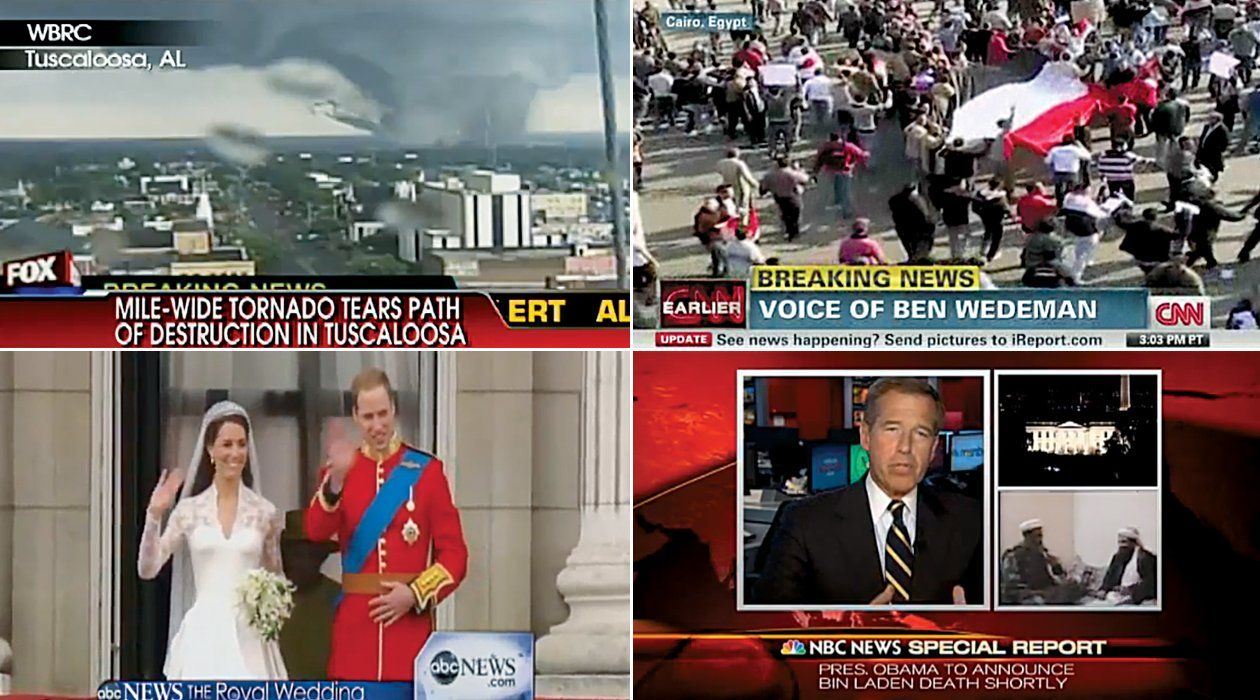
ABC's Martha Raddatz was minutes from taking off for Afghanistan when her BlackBerry buzzed with a colleague's message that Osama bin Laden might be dead. She dragged her luggage off the plane, sat down on the floor of Dulles airport, and started making calls.
It was 9:45 p.m. on May 1 as the veteran correspondent, a phone in each hand, learned details—they had bin Laden's body!—that she provided on the air from Terminal C. She drove to the office at 3 a.m. and kept on working.
The network had run more than a dozen drills for precisely this moment. "News is the ultimate defibrillator for an organization," says ABC News president Ben Sherwood. "We get shocked to life and go right into action." The problem: after the Tucson shootings, the Egypt and Libya uprisings, the Japanese nuclear catastrophe, and now the death of the mastermind of 9/11, ABC has blown through most of its multimillion-dollar emergency fund set aside for unexpected events. That is rare and could force the network to ask the Disney bosses for more, though an executive says there is "no blank check."
Big media organizations pull out the stops for game-changing stories, but they may be bleeding themselves to death in the process. The lumbering old news dinosaurs have slashed their staffs and watched online rivals eat their lunch as ratings and circulation inexorably slide downward. There are fewer ambitious projects, reduced scrutiny of government, more journalistic recycling.
Brian Williams is proudly old-fashioned. Having landed in London for the royal wedding, he immediately flew home to chase the killer tornadoes in Alabama. The NBC anchor was in his Connecticut kitchen that Sunday night when White House spokesman Jay Carney called to say he should get to the chair: "Close hold: we got bin Laden. Tell no one."
Williams threw on a suit, wiring up his earpiece to save time. He raced his Chevy SUV to Manhattan, shaving with an electric razor on the way. He made it before the president's speech and stayed on the air till 3 a.m. "People went to established brand names, and they knew we would deliver," Williams says. "I've got to be there. That's a contract."
But it's an expensive contract, and financially stretched news outlets (including NEWSWEEK) don't get a bump in advertising by spending heavily on war or disaster. ABC scored exclusive video from inside the bin Laden compound because its reporter Nick Schifrin is based in Pakistan, but the network cut a quarter of its staff last year. It's hard to measure the scoops you don't get.
When New York Times reporter Helene Cooper, at home in pajamas, heard the bin Laden rumor, she pinged a slew of administration officials before reaching one by phone. "Killed, not caught," he told her. But even as Cooper hit the "send" button, she asked herself: "What if you're wrong? This is it, I'll be fired." Only after Washington bureau chief Dean Baquet called to ask her source did the paper stop the presses, just like in the movies. Yet even the Times, a mighty global machine, has had to cut 8 percent of its staff and mortgage its headquarters.
Much of the time, the media wallow in frivolity. Television, especially cable news, has a fatal weakness for the superficial and the shiny. Covering Charlie Sheen is cheap; covering Afghanistan is expensive. Boots-on-the-ground reporting may win awards, but it doesn't pay the bills.
Now that these outlets are ramping up for a presidential campaign, cost-cutting is the new normal. Many will travel less, pontificate more, push reporters to blog and shoot their own video, buy (or just copy) material from other organizations. Nonprofits and citizens with cell-phone cameras may fill the vacuum left by once proud newspapers that now stick to their home turf and networks with hollowed-out staffs. Bin Laden's death reminds us that journalism matters, but in the end you go to war with the media you have.
Uncommon Knowledge
Newsweek is committed to challenging conventional wisdom and finding connections in the search for common ground.
Newsweek is committed to challenging conventional wisdom and finding connections in the search for common ground.





